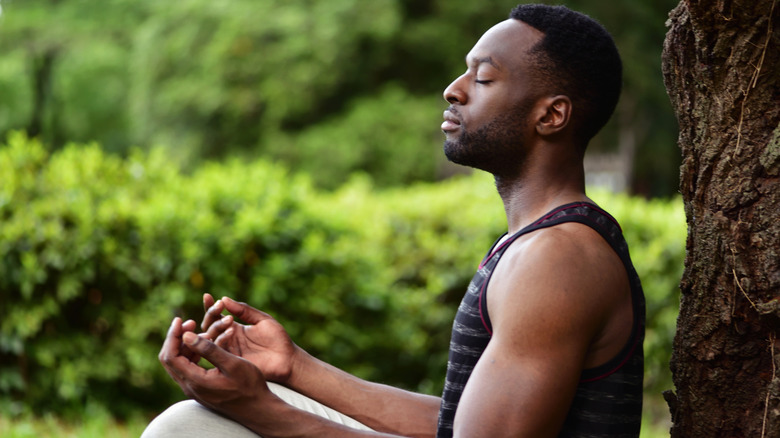Social Media Is Obsessed With Magnesium. But Is It A Miracle Mineral Or Are We All Just Getting Punked?
Whenever influencers use terms like "miracle" or "magic" to describe health products, proceed carefully, and with a hefty dose of skepticism. As psychiatrist Dr. Alex Dimitriu told Popular Science, "I think we need to be careful any time scientists and especially TikTokers make medical claims." His recommendation? Check the research to see if it backs up the anecdotal experiences of others.
So, does magnesium deserve all the hype it's getting online? Certainly, it's a popular mineral: Sales of topical magnesium reached $421.6 million in 2023 (via Growth Market Reports), and the magnesium supplement market clocked in at $29.3 million in 2024 (per Grand View Research). That said, popularity doesn't necessarily have any connection to impact.
Magnesium plays a pivotal part in 300+ bodily functions, and magnesium is also an important mineral for healthy aging. Even so, the presumption that magnesium could be an unrecognized wonder cure-all gives us pause. To separate hype from reality, let's look at two of the most widely spread social media "facts" about magnesium to see how they hold up under scrutiny: that magnesium is a surefire sleep aid, and that it can work wonders for depression or anxiety.
Assistance for getting sufficient sleep
For many, the "sleepy girl mocktail" was their first introduction to the idea of magnesium as a snooze helper. Just mix tart cherry juice, a bit of magnesium powder, and sparkling water, and you're en route to dreamland — or so the original 2023 TikTok goes.
Can magnesium bring on the snoozing? The science seems to be mixed, and relief may depend on why you're lacking sleep. Physician Lauren DeDecker told Cedars-Sinai that patients with mild sleep disturbances have had positive sleep experiences after taking magnesium supplements. However, she added, "It doesn't take the place of medication when needed."
A 2023 review in Biological Trace Element Research found evidence to potentially support a link between sufficient magnesium intake (dietary or supplemental) and improved sleep quality, but noted that more research was needed. It's a bit of a magnesium "win," but a reminder that magnesium isn't guaranteed to replace the effectiveness of other over-the-counter or prescription sleep aids.
As integrative medicine expert Dr. Naoki Umeda shared with Cleveland Clinic, the scientific verification of magnesium to support sleep is "thin" due to limited numbers of studies. That said, taking 200 milligrams around a half-hour before you hit the sack may be worth talking to your doctor about if you've already tried other sleep remedies (e.g., taking melatonin).
Promise as a mental health booster
According to psychiatrist Joseph Austerman, magnesium can dampen the nerve pathways that cause anxiousness (via Cleveland Clinic). "The on switches are the neurochemical called glutamate," said Dr. Austerman. "And the off switch . . . is a neurochemical called gamma-aminobutyric acid (GABA)." He noted that what magnesium does for your body is to stimulate GABA, adding that "[i]n some ways, magnesium can mimic what some of our anxiety medications do."
Some studies suggest that magnesium might be applied as a mental health tool. A 2023 review in Frontiers in Psychiatry found that in some trials, magnesium supplementation produced a "significant" reduction in depression in adult subjects. But a 2025 cross-sectional study in Frontiers in Nutrition found that the relationship between magnesium and depression varied depending on the age of the individual taking magnesium, as well as the level of magnesium taken. It would seem, then, that magnesium for mental wellness may be a hit-or-miss solution.
What's the verdict? Clearly, magnesium is a necessary nutrient. At the same time, we think it's probably best to see it as a possible adjunct to proven remedies rather than a standalone treatment.


